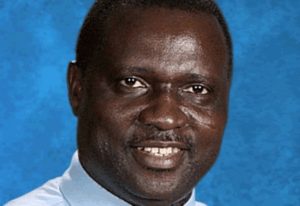Government’s educational policies are geared towards economic transformation – Dr Adutwum

Dr Yaw Osei Adutwum, Deputy Minister of Education in-charge of Basic and Secondary Education, says government’s educational reform policies are geared towards economic transformation.
He said considering today’s dynamic environment there was a need to have an educational system to suit the kind of system that ensures that Ghana was being transform; a system that would produce critical thinkers.
He said a country like South Korea had little or no resources, and at the time of independence in 1960, Ghana’s per capita income was bigger than South Korea, however, 60 years down the line, South Korea was now ahead of Ghana.
He said what they (South Korean) did was to ensure everyone had access to education, adding that “in past, we (Ghanaians), decided that if you don’t have money after junior high school you are on your own, and government has nothing to do with you, and this had an impact on Ghana’s human resource”.
He said currently, because of the free senior high school (SHS) programme, all students who meet the admission requirements, could now pursue senior secondary education.
He said Ghana’s gross tertiary enrollment ratio was 16.19 per cent as compared South Korea’s 93.6 per cent; and this implied they had the critical mass who could think critically and move their country ahead.
Dr Adutwum made these remarks at The Africa Educator’s Forum, organised by All Africa Students Union (AASU) in collaboration with the Association of African Universities (AAU).
The maiden forum, held under the theme: “Young Teachers: The Future of the Profession”, highlighted on ‘Quality Teacher Education Programmes; Quality Infrastructures; Teacher Personality; Conditions of Service for Teachers; and Professional Development’.
The event, which was held at the Accra College of Education was in commemoration of World Teacher’s Day.
The day provides the occasion to celebrate the teaching profession worldwide, to take stock of achievements, and to address some of the issues central for attracting and keeping the brightest minds and young talents in the profession.
Dr Adutwum said government’s Free SHS policy was not just a campaign promise, it was about Ghana’s transformation, as government was interested in building a country that would create an equal opportunity for everyone.
The Deputy Minister, who described education as the difference maker, said the change in curricula at the basic level would make teachers facilitators of the learning process and students can contribute to the learning process in the classroom.
He said this would ensure that students participated in the learning process and also build teams, stating that “and this brings about collaboration which invariably brings about critical thinking”.
Mr Samuel Sasu Adonteng, Head of Education and Students Rights Working Group at AASU, in an interview with the Ghana News Agency (GNA), said teacher education has been on a down-low due to inadequate infrastructure.
He urged government to focus on ensuring that teacher education becomes a priority, by investing in infrastructure saying even though the curriculum has been updated, the implementation aspect cannot be carried out highlighting infrastructure.
Mr Paa Kwesi Acquah Sam, Head of Students Affairs at AAU, also told GNA that one of the very important things to them had to do with teacher development, which covers; the subject matter knowledge; the teaching skills; and the teacher’s personality.
He said in the process of ensuring quality in Ghana’s education system, there was a need to pay attention to all these three steps; making sure that there were teachers who knew the subject they are teaching and also ensure these teachers knew how to teach well.
“The personality of the teacher comes into complement everything”, Mr Sam said adding that it was also appropriate to consider policies that would ensure that teachers are being recruited and retained in the entire process.
Source: GNA
